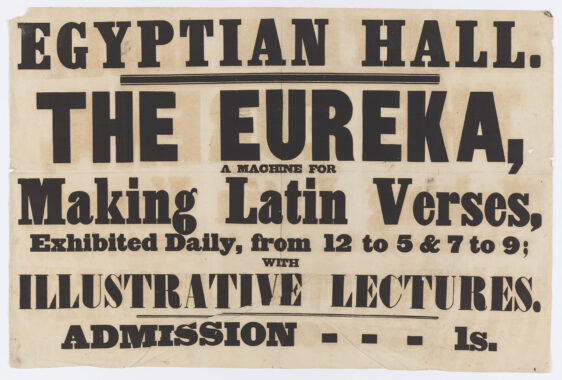The Clark Family Records
The Clark Family
A comprehensive view of the Clark family history, their social connections and experiences as active Quakers, campaigners and philanthropists spanning 400 years. Personal letters, diaries, photographs, artwork, travel accounts, autobiographies, and family objects document a four-hundred-year history of the Clark family and kinship connections across Somerset, the UK and internationally.
Clark Family archive
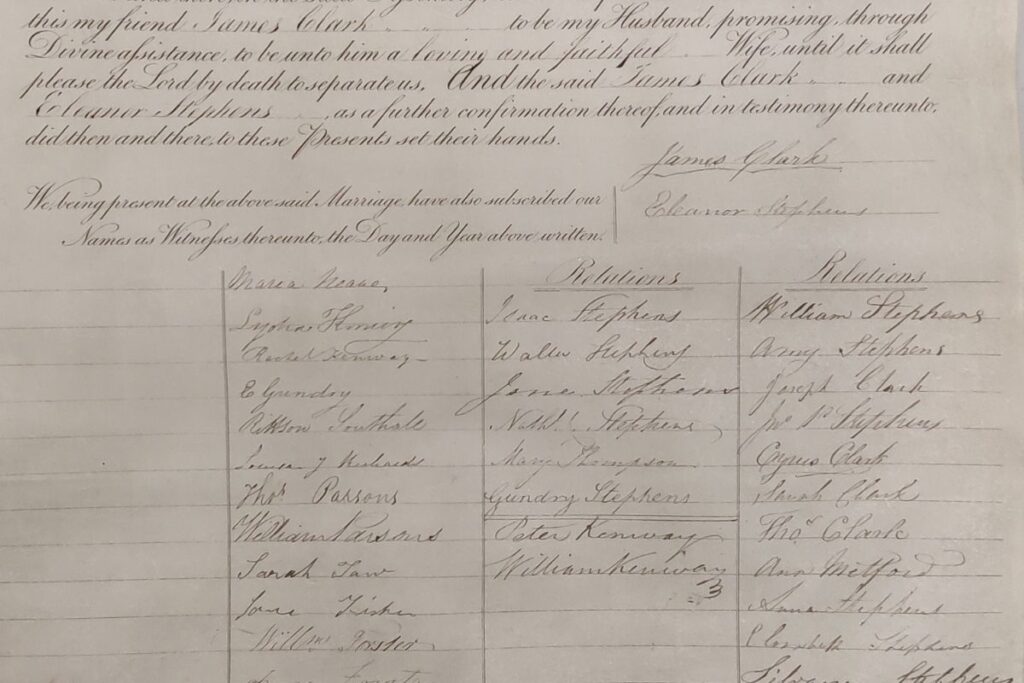
Originating as agricultural land owners from Catcott and Greinton the Clark family settled in Street in the 18th Century where their tanning, rug and shoe making businesses culminated in the development of a thriving company village. The collections have developed predominantly from the descendants of James and Eleanor Stephens Clark. Through extensive collections of diaries, letters, essays and photographs the collections illustrate the development of a global business within a rural community.
Kinship connections
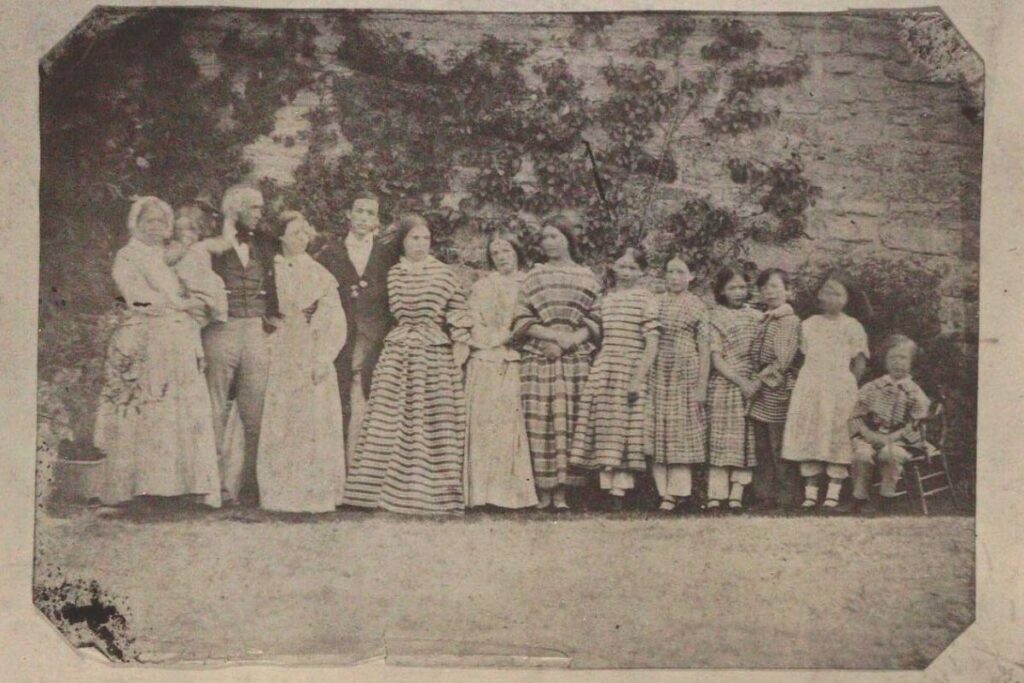
Connected through marriages the Clark family developed a broad familial network with other eminent Quaker and business families. Locally these include the Morlands and Clothiers; nationally these networks include textile manufacturers of Wheelers and Brights; internationally these connections reach the American Bancrofts and South African Smuts families. The family collections hold a rich account of these international kinship networks.
Quakerism
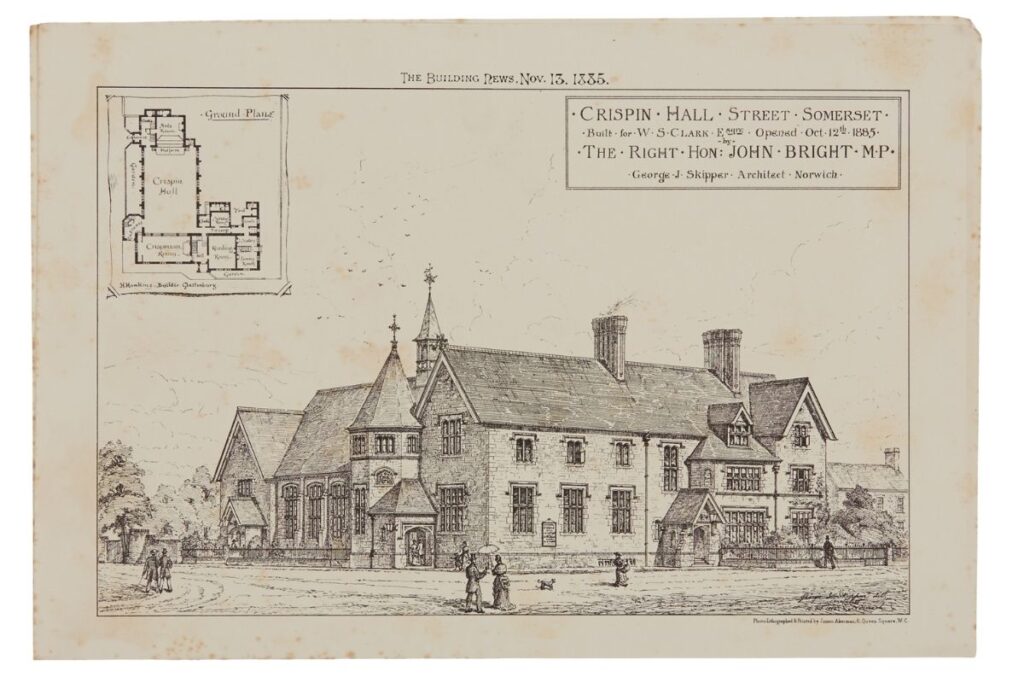
The Clark family have been active Quakers from the earliest days of the Religious Society of Friends in Somerset and have close connections to other pre-eminent Quaker families including Clothiers, Gilletts and Sturges. The family papers evidence the life and work of the Society of Friends and its members from the introduction of the religious movement in Street in 1657 to the present day. These collections include a large Quaker rare books collection. Letters, diaries and essays provide evidence of discussions surrounding societal health and wellbeing, pacifism, temperance and equality.
Social reform
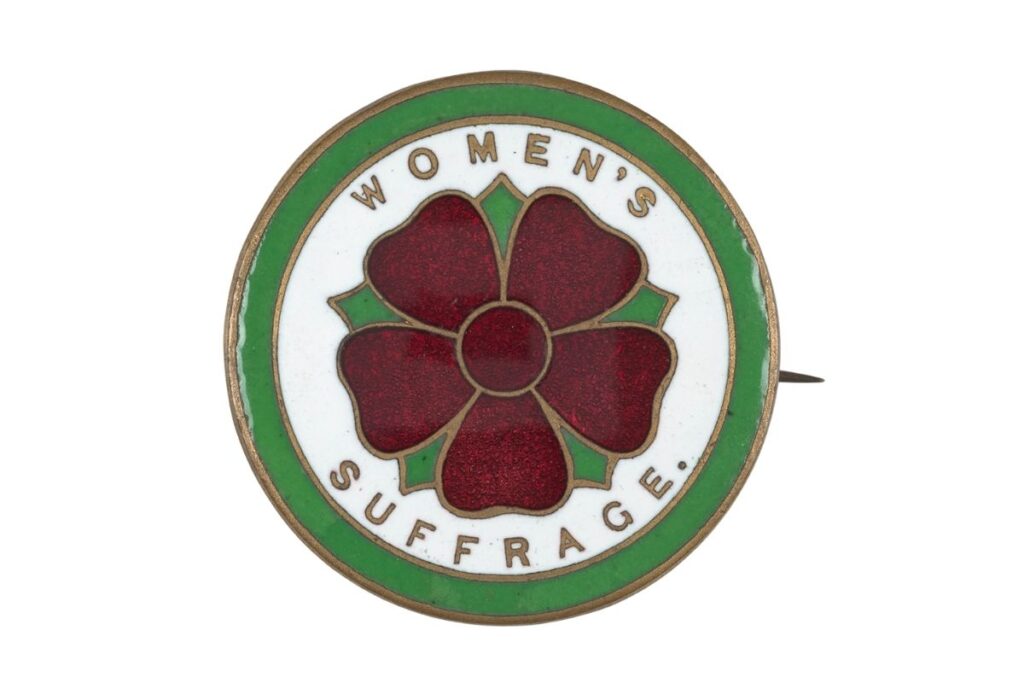
Illustrated through minute books, letters and diaries, the collections highlight the Clark family and business interests in education dating back to the early 1800s. The papers of Eleanor Stephens Clark held in the HSHC collection and those of Catherine ‘Katie’ Impey in the Clothier collection highlight support of anti-slavery and anti-racist sentiment including production of free labour produced cotton and Anti-Caste magazine. Records of prominent family members, including the Priestman sisters, Helen P B Clark, Alice Clark, Cato Clark (nee Smuts), demonstrate long and continued support of women’s suffrage from the mid-19th century until women were given the right to vote in the UK in 1928.
